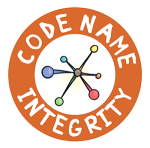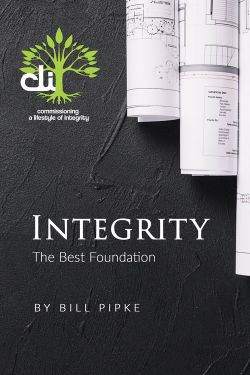Authenticity - Part 2 Session 1
Welcome to Integrity: The Best Foundation, the book and video series that's designed to help you live and lead with integrity.
I want to help you find your true north. When we ask Canadians, "Well, how are you doing?", they'll often say something like, "Well, I'm good, but busy." You hear this from men, women, college students, the retired, the urban, suburban, all races. Everyone seems to be very busy. Most people are too busy. Too busy to live emotionally, relationally, spiritually vibrant lives. One of the big reasons people don't grow, families don't thrive, and the weary don't recover from trauma, is busyness. People just don't have the time, and the reserves are spent. Psychologists are now diagnosing people with hurry sickness, a condition where a person feels chronically short of time, agitated when they encounter delays, and overwhelmed by the demands, so they tend to perform every task faster and faster. Hurry is the issue feeding many concerns in our age, from the outrage culture, anxiety epidemic, the digital distraction, loneliness, suicide rate, and exhaustion.
Some would argue that hurry not only makes you weary, but it distracts your soul. I doubt that most of us would think that the devil is in another alert on our phone, or on Instagram, or another hour at the office, or another activity, another late night, another email flurry. If you think about it, overload, exhaustion, digital distraction have a negative effect on who you are. Busyness can cause you to miss the mark of being true to who you are, and the essence of your purpose.
There are two kinds of busyness: There's the busyness that means you have a lot to do. And the second type of busyness is called pathological busyness. You have too much to do, so you try to cram it all in, and you speed up your mind, emotions, body, business, and relationship, and all of that into a frenzied pace that is incompatible with healthy living.
Let me suggest an effective antidote for your hurried sickness. This might surprise you, and it might catch you off guard: Have a personal retreat.
I know your first reaction would be, "Well, I'm too busy." Actually, that's why you need a personal retreat. People protest "Well, I don't have time. It's too costly. Where will I get away from the distraction? I don't know how I would do it. And where would I go? And are you sure it has the value that makes it worthwhile?" Well, the faster lives move, the more important it is to step off the spinning wheel and find your true north. My experience is that a personal retreat is invaluable, and it brings significant benefit to the one who takes the retreat, but also benefit to those who are around them.
Sometimes vacations are a little glimpse into the benefits found in a personal retreat. Generally, people return from a holiday feeling refreshed and refocused.
Unlike the benefits of a holiday, which disappear rather quickly, the benefits of a personal retreat tend to remain long after the retreat is finished. Imagine a time during a retreat that resulted in your feeling reorientation, reaffirmation of your values, reestablishment of your purposes, reorganization, re-energization, and just plain refreshing. Well, let me give you a few tips that have worked for me in planning a personal retreat.
The first: Choose a time. You probably want to plan a retreat that months, months and months ahead, but put it on your calendar.
Secondly, budget for it. It doesn't need to be expensive.
Thirdly, set your purpose. Make it intentional, but keep it simple and largely reflective.
Fourthly, find a place where you can get alone, but a place where you will be comfortable.
And fifthly, control the distractions in advance.
Now, a personal retreat is both life-giving and protecting. You will re-center your focus and stop a life that's just passing you by; then you'll begin to be reengaged. Now, I wish I had time to read to you some of the stories that have been shared with me from people who've taken a personal retreat. Again and again they tell me how a personal retreat has radically improved their life and their leadership.
Now, I have friends who live with sugar diabetes. You would never know they have this disease unless you spend a few hours with them. Sooner or later, they will monitor their sugar levels. Their practice of monitoring the sugar levels and responding to those readings is essential to the best health possible. The fact is, what gets monitored gets improved. And if I don't monitor my life, one day I will likely regret the opportunities I missed and the joys I never experienced.
A personal retreat is as essential for a person who wants to live and lead with integrity as monitoring sugar levels is to a diabetic.
So here's our group question to begin to discuss:
If you've gone on a personal retreat, share your experience with the group.
What are the obstacles you face in taking a personal retreat, and how will you overcome those obstacles?




